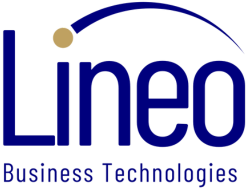Introduction
Generating leads is essential for any business, but it can be especially challenging for digital businesses.
Lead Generation is the process of attracting and converting strangers into customers or leads. There are a variety of ways to generate leads, and each method has its own set of pros and cons.
To help you decide which lead generation methods are right for your business, we’ve compiled a list of the seven most popular types of lead generation and how to generate them.
What is lead generation?
A lead can come in many different forms, such as a name, an email address, a phone number, or simply an interesting prospect. Lead generation is the process of attracting and converting strangers and prospects into customers or clients.
Lead generation is essential for any business that wants to grow. To succeed in business today, you need to have a steady flow of leads coming in.
That’s where digital marketing agencies come in – they help businesses generate leads through various online channels.
7 types of lead generation that marketers should know
There are many different types of lead generation, but here are the seven most common ones:
Search Engine Optimization (SEO):
This is the process of optimizing your website for Google search to earn higher web traffic levels and improve your chances of ranking for relevant keywords.
Social Media Marketing (SMM)
This involves using social media platforms like Facebook, Twitter, and LinkedIn to promote your business and build relationships with potential and current customers.
Content Marketing
This is a type of marketing that focuses on creating and distributing valuable, relevant, and consistent content to attract and retain a clearly defined audience — to drive profitable customer action.
Email Marketing
This involves using email to send out targeted messages with the goal of acquiring new customers or growing relationships with current ones.
Lead Magnets
A lead magnet is a piece of content that’s offered as an incentive in exchange for someone’s contact information.
Landing Pages
A landing page is a standalone web page, created specifically to convert website visitors into leads.
Lead Nurturing
Lead nurturing is the process of developing relationships with buyers at each stage of the sales funnel and through each step of the buyer’s journey.
Here are some tips for generating leads in a digital world:
- Use paid advertising. Paid advertising is a great way to reach potential customers who are already interested in what you have to offer. You can target specific demographics and interests, and you can control the budget so that you’re not spending more than you want to.
- Use social media. Social media is a great way to connect with potential customers and create a relationship with them. You can share valuable content, answer questions, and build trust before asking for a sale.
- Use email marketing. Email marketing is still one of the most effective ways to reach potential customers. You can send targeted messages to people who have expressed interest in what you have to offer, and you can track how many people open and click through your emails.
- Offer free resources. People are more likely to buy from you if they know what you’re selling is valuable. Offering free resources, such as e-books, whitepapers, or templates, can help potential customers learn more about what you do and how you can help them.
Importance of lead generation in marketing
Lead generation is a key element in the sales process for many B-to-B companies since their products and services are usually complex and expensive, which means that customers can’t easily make purchasing decisions on their own.
To generate leads that will eventually convert into sales, businesses need to understand what motivates their target audience and then create content that addresses those needs.
A lead is a potential customer that has been identified as someone who may be interested in your product or service. To generate leads, you need to create content and marketing campaigns that will attract and engage potential customers.
You can also use lead generation tools and techniques to help you identify and target potential leads.
What tools you can use to generate leads successfully
Lead generation tools help businesses automate the process of collecting and storing lead data. Lead generation software can capture leads from online forms, landing pages, and email campaigns, as well as from offline sources such as trade shows and events.
Here is the list of the 10 most innovative lead-generation tools
- Lead pages
- Quora
- MailChimp
- NextDoor
- LeadForensics
- UpViral
- WordPress
- Hootsuite
- HubSpot
- MannyChat
- Wistia
- Webinar jam
Digital marketing agencies are experts at lead generation
If you want to generate more leads for your business, it’s important to work with a digital marketing agency that can help you with Lead Generation. At our agency, we specialize in helping businesses generate leads through SEO, Social Media Marketing, and Content Marketing. Contact us today to learn more about how we can help you grow your business!
Do you have any questions about lead generation? Reach out to us today! We would love to hear from you!
Thank you for reading! We hope this article was helpful. Lead generation is an essential part of any business, and we want to make sure you are successful in your lead generation efforts. Contact us today to learn more about how we can help you grow your business!




